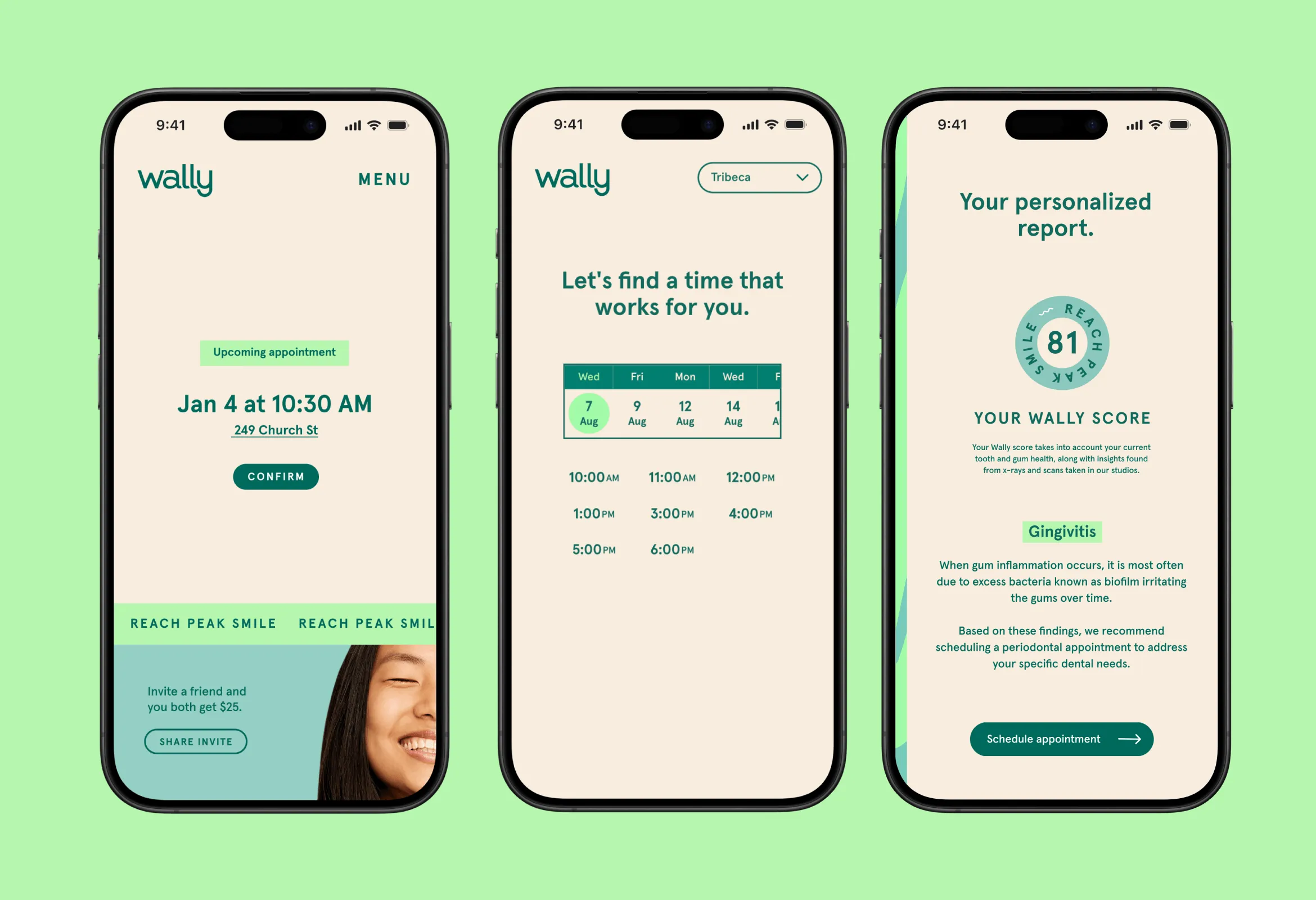Is the pandemic making me grind my teeth?

Hold up, has there actually been an uptick of teeth grinding during Covid? What really causes me to grind my teeth?
A survey done by the ADA reports a 59% increase in bruxism (grinding). The increase in cracked teeth? You guessed it, almost the same increase. Yikes! 😳
This past year has been a huge source of stress and our bodies are feeling it in all sorts of ways. You might have noticed your jaw is a little tight during all those Zoom meetings. Maybe constantly trying to maintain social distance in a crowded city is catching up to you and you’ve realized your teeth are clenched together behind your mask as you weave your way down the sidewalk. Whatever the case may be, it is important to know your triggers. “Just be mindful of when you do it and things that trigger you to do it...and go from there on how to treat it in a way that’s effective for your lifestyle.” Emanuela Cento, RDH tells us.
But, stress isn’t the only cause. Teeth grinding can also be caused by:
- Behavioral disorders
- Sleep disorders like sleep apnea
- Medications, like anti-depressants
- Genetics
How do I know if I grind my teeth?
First, let's talk about if you're a day grinder or a night grinder (or both). Some people clench or grind their teeth during the day, and if that's the case you've probably caught yourself doing it from time to time.
But if you grind at night you obviously won't notice that you're doing it. Here are a few signs you can check to determine if you grind at night:
- Your jaw feels tight when you wake up
- Your jaw feels sore in the morning
- You wake up with a headache or migraine
- Your partner tells you they can hear you grinding
So I grind my teeth, what's the big deal?
If you realize you grind, it's important to address it, pronto ⚡. Grinding can cause serious damage to those chompers and once the damage is done it can be expensive to treat it.
Why is it so damaging? Well, chewing exerts 20-40 pounds of pressure on the teeth, but grinding exerts 250 pounds of pressure. All that pressure can lead to cracked teeth, jaw problems, and even gum recession.
And grinding your teeth will wear down your enamel. Once you grind through the enamel layer of the tooth, you hit the dentin, which is weaker than enamel and wears about 30% faster. If you reach dentin that means you’ve lost a lot of tooth structure and will need more extensive and expensive treatment to fix it.
What can I do to stop clenching or grinding my teeth during the day?
If you are a day grinder and gnash those teeth together during stressful situations, try pinpointing the trigger. Is it when your kids run in on your Zoom meeting? When a customer is being difficult? When you have to interact with people in person and are stressed about maintaining a 6-foot distance?
It can help to keep a journal about what happens when you find yourself grinding during the day. When you realize you're clenching, pick up your pen and note what's been going on the past few minutes.
Once you identify the trigger you have the power to combat it. Here are a few tips for when the trigger happens:
- Slightly open your jaw and rest the tip of your tongue on the top of your front teeth. Then slightly close your jaw until your top teeth touch your tongue. This trains your jaw muscles to relax.
- Avoid chewing gum. Constant chewing conditions your muscles to clench harder and makes it more likely you'll grind your teeth.
- Place a warm, damp cloth against your cheeks (just in front of your earlobes) to help relax your jaw muscles.
What if I wake up realizing I've been grinding my teeth?
The best way to start addressing it is to get a night guard. Having the right night guard that's fit to your teeth and mouth will create space between your teeth and relax your jaw muscles. And don't forget to keep that night guard sparkling clean! It will do wonders protecting your teeth, so it's important to keep it free from bacteria.
But night guards aren't the only thing to consider. While night guards help prevent damage, you'll also want to attack the root causes of your night grinding, primarily getting a better night's sleep. As Sarah Clark, Wally’s Hygienist says: “It is important to not only prevent the potential damage to teeth and gums caused by grinding, but it’s also important to work to determine the root cause.”
Here are a few things that can help you relax overall which helps relax your jaw muscles, and can help you decrease the stress that's causing you to grind in your sleep:
- Meditate or journal before bed
- Adjust your posture during the day
- Ensure your sleep environment is comfortable and relaxing
- Decrease alcohol intake, especially right before bedtime
Another treatment that’s becoming more popular is having Botox administered to help reduce muscle activity in the jaw. Botox injections work to relax the muscles responsible for clenching and grinding which in turn helps relieve tension in your jaw.
While we get ready to put this pandemic behind us, many of our new habits will be here to stay, including grinding and clenching. So let’s stop that grinding now - your teeth and jaw will thank you 🙏. If you're grinding, chat with a hygienist at Wally — from the comfort of your own home — about creating a custom solution for you.









